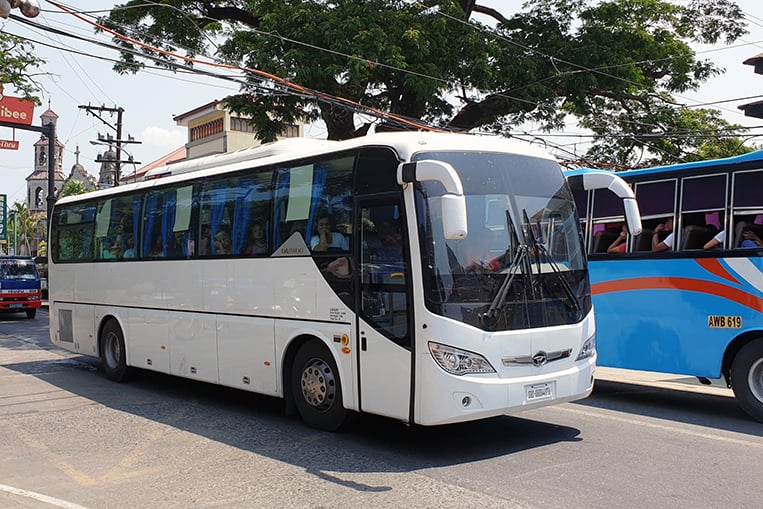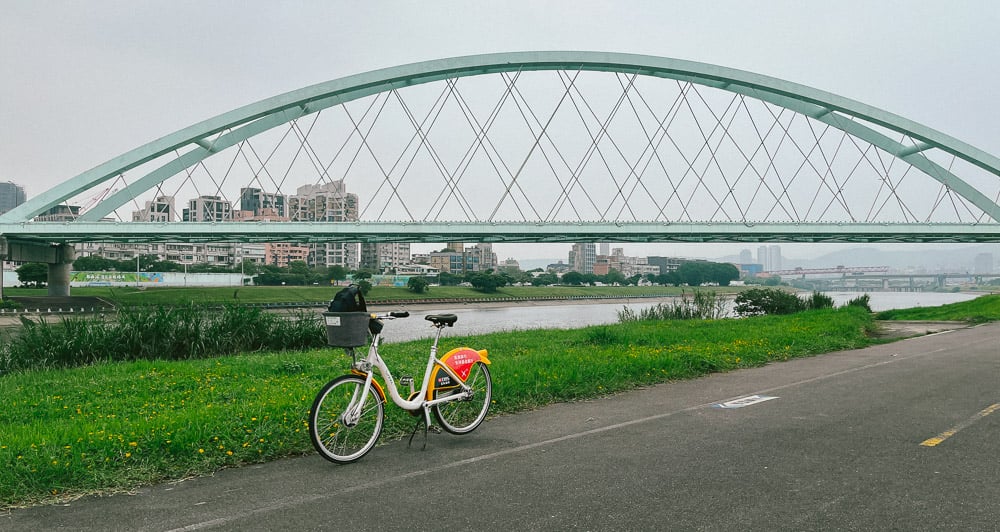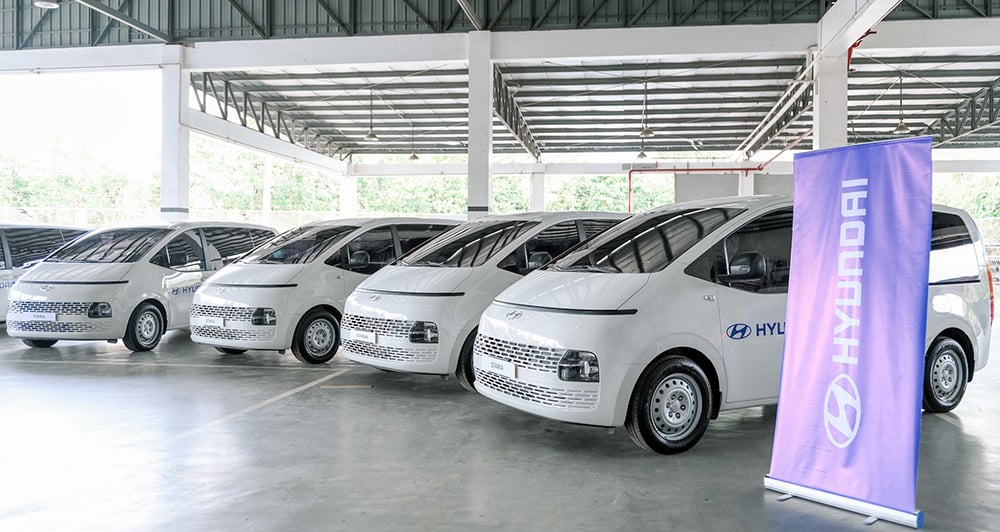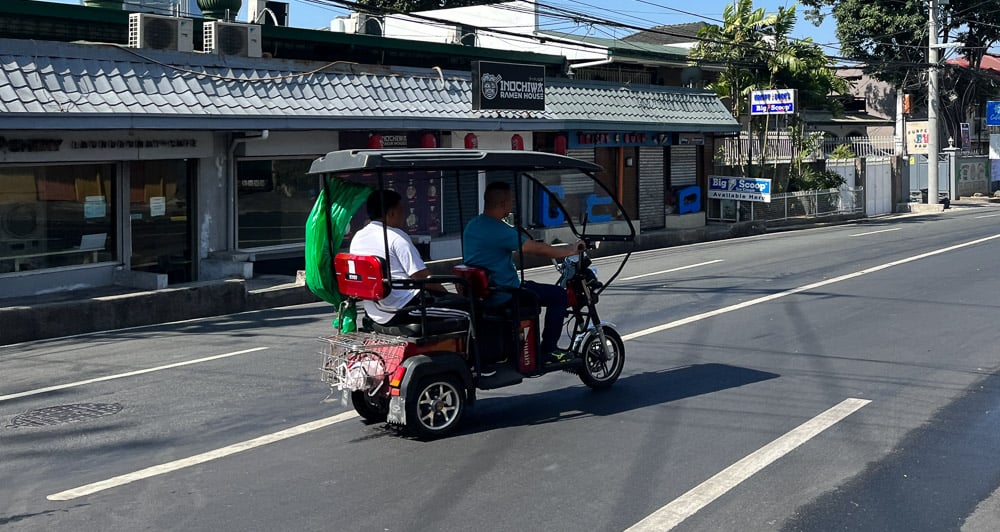
Below are the guidelines (lifted verbatim from the official document) to be implemented by the Department of Transportation throughout the duration of the imposed community quarantine in Metro Manila—from March 15 (00:00H) to April 14 (23:59H)—to help prevent the rapid spread of the COVID-19 disease or the novel coronavirus.
GENERAL GUIDELINES
Pursuant to the Inter-Agency Task Force (IATF) for the Management of Emerging Infectious Disease Resolution No. 12 series of 2020 dated March 13, 2020, the following general guidelines shall be adopted in line with the implementation of community quarantine in the National Capital Region, to ensure the well-being and safety of the riding public. To wit:
1. Restrict the nonessential entry of people to the contained areas, especially persons who are at high risk of being infected, or those 60 years old and above, those who are immunocompromised or are co-morbidities, and pregnant women, except:
- health workers;
- authorized government officials;
- those traveling for humanitarian reasons;
- persons transiting to airport for travel abroad;
- persons providing basic services and public utilities; and
- essential skeletal workforce.
2. Prevent the nonessential exit of people out of the contained area, except:
- health workers;
- authorized government officials;
- those traveling for humanitarian reasons; and
- those who are granted entry based on the above-mentioned provisions.
3. Implement social distancing and other precautionary measures to prevent further transmission of the virus.
SECTORAL GUIDELINES
A. ROAD SECTOR
1. All public-utility vehicle (PUV) operators and drivers shall observe the following passenger limit:
- Taxis and transportation network vehicle services (TNVS), including accredited airport taxis, should not have more than four (4) passengers including the driver, one seat apart;
- UV Express vehicles should not have more than six (6) passengers including the driver, one seat apart;
- Old units of public-utility jeepneys (PUJ) should not have more than half of their regular capacity including the driver, one seat apart;
- Omnibus Franchising Guidelines (OFG) compliant units (Classes 2 and 3) should not have more than one-half of the seating capacity, one seat apart and without any standing passenger; and
- Public-utility buses (PUB) should not have more than twenty-five (25) passengers including the driver and the conductor, one seat apart and without any standing passenger.
2. Multiple bookings for a single trip provided by the TNVS and the pilot implementation of motorcycle taxis shall be suspended/prohibited.
3. All operators are also directed to inform/educate their drivers and conductors to be observant of their passengers during travel. Should any of their passengers manifest any symptoms of COVID-19, they shall assist said persons to the nearest hospital and report the incident to the Department of Health (DOH) or the Philippine National Police (PNP) for proper handling. All PUV drivers and conductors are also required to cooperate and observe DOH and PNP protocols/procedures.
4. All terminal operators shall not allow any person to enter their terminal premises if said person manifests any of the symptoms of COVID-19, such as those with a body temperature of 38°C or higher, severe coughing or breathing difficulty.
5. Provincial buses and inter-regional trips of jeepneys and UV Express to and from Metro Manila shall be terminated at the entry points as identified by the PNP. For all PUVs entering and exiting Metro Manila, drivers and conductors shall remind all passengers to be ready to present a valid company ID (showing place of work) and a government-issued ID (showing place of residence), pursuant to Department of the Interior and Local Government (DILG) or PNP procedures and protocols at all entry/exit points. All PUV drivers and conductors are also required to cooperate and strictly observe DOH and PNP protocols/procedures.
6. Point-to-point (P2P) buses from Ninoy Aquino International Airport to Clark International Airport and Sangley Airport shall be allowed to operate as scheduled, subject to DOH and PNP protocols/procedures.
7. The following measures, first implemented following DOH’s confirmation of the first local COVID-19 case, shall continue to be implemented:
- All PUV drivers and conductors should properly wear masks at all times while on duty;
- All public-transport vehicle and terminal operators should ensure and maintain proper sanitation and cleanliness of their PUV fleets and their premises on a daily basis, and provide disinfectants or sanitizers for free use by passengers;
- Posting of periodic announcements and precautionary reminders in strategic locations that could help prevent the transmission of the virus; and
- All public-transport vehicle and terminal operators are encouraged to take other measures necessary to reduce the risk of transmission in public transportation.
B. RAIL SECTOR
1. Trains shall be loaded at reduced capacity (25%, pursuant to IATF and DOTr guidelines implementing 1m social distancing) to minimize the concentration of passengers per train. Station personnel shall regulate the entry of passengers from station platforms to trains. It is noted that these measures will lower our railway lines’ capacity and thus result in longer queues. We appeal to our passengers’ understanding as these public health measures are implemented to manage the current public health emergency. Operating hours may be extended on a case-to-case basis to accommodate passengers who are already in line.
2. Passenger concentration on station platforms and in concourses and elevators shall be reduced. Station personnel shall regulate the entry of passengers into stations, and shall implement measures for orderly and distanced queuing both inside and outside the stations.
3. Passengers exhibiting COVID-19 symptoms or that register 38°C (or higher) of body temperature, pursuant to DOH guidelines, shall be refused entry to stations and trains. In such cases, the concerned station personnel shall observe DOH guidelines on COVID-19 response procedures.
4. The women and senior citizens section of train cars will be further separated, designating a subsection for senior citizens.
5. Philippine National Railways operations from Alabang to Calamba (and vice versa) shall be suspended during the period of community quarantine.
6. The following measures, first implemented following DOH’s confirmation of the first local COVID-19 case, shall continue to be implemented:
- Placement in strategic areas of alcohol-based hand sanitizers, and ensuring the availability of hand-wash soap in all toilets;
- Disinfection of train interiors and station premises, particularly frequently touched surfaces that are exposed to the public. Trains will be disinfected at least every loop (that is, every time a train reaches its end stations);
- Wearing of appropriate face masks, especially for frontline station and security personnel;
- Noncontact thermometers will be used to identify and control entry of passengers who will register heightened body temperatures. Station personnel shall observe COVID-19 response standard operating procedures in managing such passengers.
- Use of TV screens at stations and on trains, where available, to play materials from DOH regarding dos and don’ts on how to reduce the risks of COVID-19 transmission. Print materials from DOH will likewise be posted at stations.
- Posting in strategic locations and periodic announcements of reminders for preventive action that could help prevent transmission of the virus.
7. Rail operators are encouraged to take other measures necessary and desirable to prudently reduce the risks of transmission in all rail lines.
C. AVIATION SECTOR
1. All domestic flights will cease operations in the community quarantine area, except the following:
- Cargo flights;
- Air ambulance and medical supplies;
- Government/military flights;
- Weather mitigation flights; and
- Maintenance and utility flights.
2. No general aviation flights within the community quarantine area during the period. General aviation flights will be diverted to Sangley Airport and Clark Airport.
3. International and commercial flights:
- Special airport-to-airport trips arranged by the airlines, in coordination with the airport authorities, shall be allowed;
- Passengers may opt to terminate flight in Metro Manila, and arrange their own transport within Metro Manila;
- Airlines to communicate options of beyond-Manila travel; and
- CAAP to entreat local airlines to operate sweeper flights out of Metro Manila and into other airports.
4. At least one meter (1m) of radius distance from the other passengers shall be implemented. Areas where queuing takes place (X-ray stations, check-in counters, etc.) shall have signage asking people to observe proper social distancing, and flight information display system will show video reminders of the same.
5. Suspension of issuance of access passes for visitors. Only passengers and essential personnel shall be allowed entry and exit at airport terminals.
6. Passenger, employee and transacting public concentration in screening areas, check-in counters, immigration areas, concourses, elevators, escalators and access pass control windows shall be regulated for orderly and distanced queuing.
D. MARITIME SECTOR
1. For passengers and other maritime personnel:
- Enhancement of passenger awareness on precautionary measures to prevent the spread of COVID-19 by putting up signage and distributing flyers and pamphlets, and using the public address system at ports and on vessels;
- Promotion of the observance of the one-meter (1m) social-distancing measure at ports and terminals, and on vessels and watercraft;
- Implementation of passenger screening, segregation and management in accordance with DOH procedures and related guidelines; and
- Crew of cargo vessels originating from COVID-19 affected ports identified under relevant IATF resolutions shall be subject to stringent quarantine procedures, and shall not be allowed to disembark subject to existing guidelines.
2. For ships and cargoes:
- Passenger traffic at all ports going in and out of the NCR shall be suspended during the period of community quarantine. However, ferry services within the NCR shall continue to operate subject to the observance of 50%-reduced capacity as prescribed the the Maritime Industry Authority (MARINA);
- Ships normally plying routes within the NCR shall be allowed to call at ports outside of the same upon application for the issuance of a special permit with MARINA during the period of community quarantine;
- All passenger terminals and all vessels shall strictly observe hygienic measures as prescribed by DOH;
- Movement of cargoes to and from the NCR shall be unhampered. All cargo trucks/vans going in and out of the Port of Manila (South Harbor, MICT, North Harbor and Manila Harbor Center) shall secure a cargo entry/withdrawal permit (CEWP) from the Philippine Ports Authority (PPA), which shall be presented for validation at designated checkpoints; and
- Waste reception services at the ports shall be suspended. Both foreign and domestic ships are obligated to unload their waste at the next port of call outside the NCR.
3. Controlled areas:
- “No Sail” policy shall be implemented with all water conveyances carrying passengers calling to and from any port of Metro Manila, except foreign ships subject to CIQS procedures and domestic cargo, fishing and government vessels subject to health screening pursuant to DOH advisories and guidelines.
- Establishment of entry and exit controls at ports and other maritime areas and waters as identified by the Philippine Coast Guard (PCG).
EFFECTIVITY
This guideline shall take effect immediately and shall be applicable for the duration of the Public Health Emergency of International Concern (PHEIC) until said medical condition has been lifted by proper health authorities.
This policy shall be subject to daily review and revision as necessary. Advisories or parts thereof earlier issued by this Department inconsistent with the above are hereby revoked and superseded.











Comments